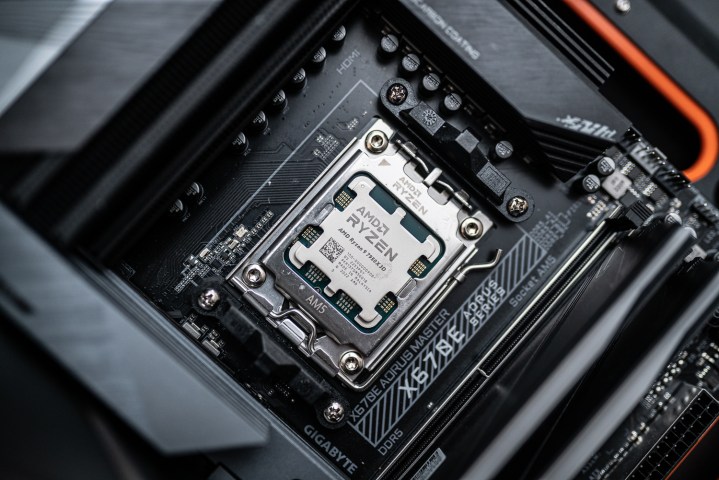
Zen 4 still feels quite new, but AMD is already preparing to launch its Zen 5 architecture in 2024, with AMD Ryzen 8000 processors now on the horizon.
New leaks shed some light on the upcoming chips, and while a lot is still uncertain, one thing is clear — AMD is sticking to a somewhat controversial design choice that sets it apart from Intel: keeping the same core counts.
It’s worth noting that it’s not a surprise to hear that AMD Ryzen 8000 “Granite Ridge” chips are already well into their production cycle. According to the scoop shared by Moore’s Law Is Dead, AMD may be readying for launch in the last quarter of 2024. However, a lot still remains unclear when it comes to this generation of chips.

The slide that Moore’s Law Is Dead showed in its latest video refers to Granite Ridge in the context of AMD’s server road map, so it’s hard to tell whether these are consumer chips or not. On the other hand, that doesn’t exclude the fact that AMD might be working on both types of chips.
There appear to be more similarities between Zen 4 and Zen 5 than some might have expected. For one, as stated earlier, the upcoming CPUs are said to come with the same core counts as Zen 4, meaning a maximum of 16 cores. This is an interesting choice that definitely varies from what Intel is doing these days, which is chasing higher core counts.
Similarly, the thermal design power (TDP) for the Zen 5 CPUs is said to range between 65 watts and 170 watts. As per TechRadar, these specs could give us an up to 10% to 15% increase in frequency while maintaining the power consumption of Zen 4.
Wccftech reports that this should be an embedded lineup, meaning that the chips would be integrated directly onto the motherboard, with no chance of swapping or upgrading. However, it also points out that they should also feature support on a socketed platform — so the regular consumer-level CPU hope lives on. In fact, the desktop CPU family is said to be launching way ahead of the embedded chips.
As for the architecture, rumor has it that AMD may be switching to TSMC’s 3nm process node, although 4nm is still possible. In any case, the Zen 5 cores are to be code-named Nirvana. It seems that AMD is heavily targeting a balance between performance and efficiency as opposed to pushing for raw numbers the way Intel sometimes does in some of its top CPUs.
While the decision to keep the same core counts is controversial to some, AMD seems to be gearing up for serious upgrades in Zen 5, including a redesigned cache and improved AI capabilities. With the launch predicted to be over a year away, it’ll be a while before we can know anything for certain.



